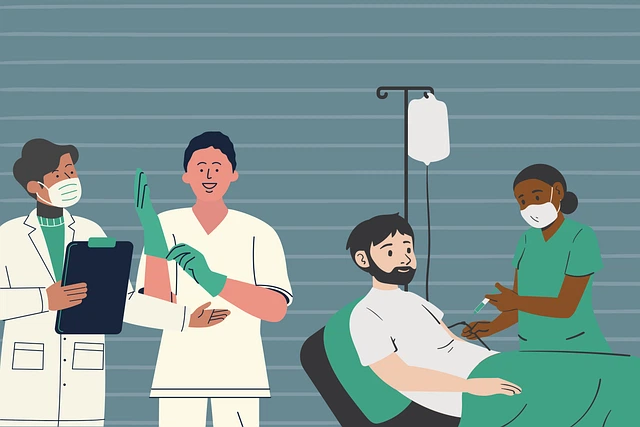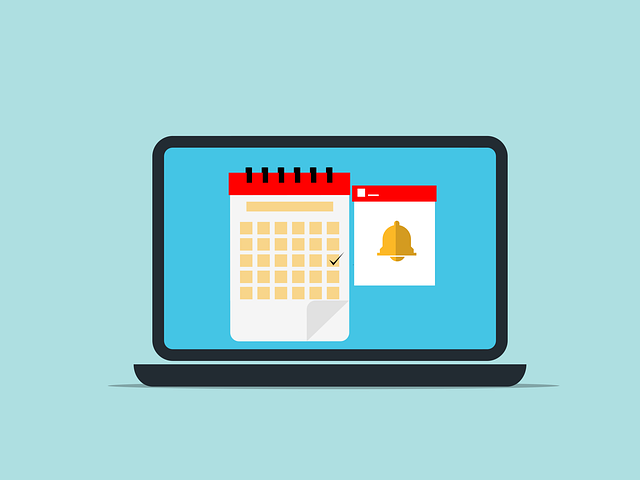Efficient lead scheduling in medical practices involves implementing advanced appointment booking systems like online tools and automated call centers to reduce no-shows. Combining this with follow-up calls and data analysis improves patient engagement, optimizes scheduling, and enhances overall care delivery. Proactive strategies such as personalized reminders and timely confirmations revolutionize calendar management, benefiting both patients and healthcare providers.
In today’s competitive healthcare landscape, efficient lead engagement and appointment scheduling are crucial for medical practices to thrive. This comprehensive guide explores innovative strategies tailored to enhance patient experiences and boost operational efficiency. From automating scheduling to minimizing no-shows and integrating booking systems, discover how these techniques can transform your practice, ensuring a steady stream of engaged patients and reduced administrative burdens.
- Efficient Lead Engagement Strategies for Medical Practices
- Automating Appointment Scheduling: A Game Changer
- Minimizing No-Shows: Effective Reduction Techniques
- Personalized Reminders: Enhancing Patient Attendance
- Integrating Booking Systems for Seamless Experience
- Data Analysis: Understanding Patient Behavior Trends
Efficient Lead Engagement Strategies for Medical Practices

In the competitive landscape of healthcare, efficient lead engagement is key to success for medical practices. Implementing strategic lead scheduling and robust medical appointment booking systems can significantly enhance patient acquisition and retention rates. One effective strategy involves leveraging technology to automate initial patient interactions, such as through online scheduling tools and responsive call center appointment booking services. By providing patients with convenient ways to book appointments, confirmations, and reminders, practices can reduce no-shows and improve overall efficiency.
Additionally, follow-up calls play a crucial role in the lead engagement process. Automated or personalized appointment follow-up calls not only serve as reminders but also offer an opportunity to address any concerns, collect feedback, and encourage repeat visits. This multi-channel approach, combining technology solutions with proactive communication, ensures that medical practices can effectively manage their patient base, optimize scheduling, and ultimately deliver superior care.
Automating Appointment Scheduling: A Game Changer

In today’s digital era, medical practices are exploring innovative ways to streamline their operations and enhance patient engagement, and automating appointment scheduling is a game changer in this regard. Traditional call centers for appointment booking can be cumbersome and time-consuming, often leading to errors and missed opportunities. With advanced technology, medical practices can now leverage automated systems that efficiently manage lead scheduling, ensuring a seamless experience for both patients and healthcare providers.
By implementing an automated reminders healthcare system, medical facilities can reduce no-shows significantly. These intelligent systems send timely notifications, reminding patients about their appointments, increasing the likelihood of attendance. This not only optimizes the practice’s schedule but also allows healthcare professionals to better plan and allocate resources. Automated appointment booking is a powerful tool that promises to revolutionize lead scheduling medical practices, making patient management more effective and efficient.
Minimizing No-Shows: Effective Reduction Techniques

Minimizing no-shows is a key aspect of optimizing lead scheduling and enhancing medical practice efficiency. A strategic approach to managing appointments can significantly reduce these instances, ensuring better patient engagement and maximizing resource utilization. One effective technique involves implementing an efficient call center appointment booking system that includes automated reminders. Patients are contacted closer to their scheduled time, often via text or email, serving as a gentle nudge to attend the visit. This simple measure has shown remarkable success in decreasing no-shows by raising awareness and prompting timely responses.
Additionally, a robust appointment follow-up call strategy is instrumental. After an initial booking, a dedicated follow-up call can be made a day or two before the appointment. This personal touch not only confirms attendance but also allows for any last-minute changes or rescheduling to be addressed promptly. By combining these techniques—automated reminders and proactive follow-ups—medical practices can effectively reduce no-shows, improve lead conversion rates, and streamline their scheduling processes, ultimately benefiting both patients and the practice’s bottom line.
Personalized Reminders: Enhancing Patient Attendance

In today’s fast-paced world, ensuring patient attendance is a constant challenge for medical practices. A simple yet effective strategy to combat no-shows is through personalized reminders. By implementing automated reminders healthcare providers can enhance patient engagement and improve overall scheduling efficiency. These tailored messages, sent via text or email, offer a friendly nudge, reminding patients of their upcoming appointments and providing critical practice scheduling support.
Additionally, appointment follow-up calls can significantly reduce last-minute cancellations. A quick call to confirm the appointment not only ensures the patient’s attendance but also allows the medical team to better manage lead scheduling medical needs. This dual approach of automated reminders healthcare and proactive follow-ups can revolutionize how practices handle their calendars, ultimately fostering a more reliable and responsive healthcare environment.
Integrating Booking Systems for Seamless Experience

Integrating a robust booking system into your medical practice offers a seamless experience for both patients and staff. By streamlining lead scheduling and visit management, practices can eliminate inefficiencies and improve patient care. Modern booking systems provide an intuitive interface, allowing patients to schedule appointments online with ease. This real-time visibility ensures healthcare providers have accurate data on patient availability, reducing the risk of overbooking or double-booking.
Moreover, automated reminders via text, email, or call center appointment booking can significantly decrease no-show rates. These reminders offer a level of practice scheduling support that keeps patients engaged and informed, fostering a sense of accountability. In light of these advancements, medical practices can enhance their operational effectiveness and focus on delivering quality healthcare services.
Data Analysis: Understanding Patient Behavior Trends

Data analysis plays a pivotal role in understanding patient behavior trends within medical practices. By leveraging advanced analytics tools, appointment scheduling services can gain valuable insights into patient demographics, preferences, and booking patterns. This data-driven approach allows for personalized marketing strategies that engage leads more effectively, ultimately improving conversion rates. For instance, identifying peak scheduling times or preferred communication channels enables practices to optimize their lead scheduling processes, ensuring better patient retention.
Moreover, continuous analysis of historical appointment data helps in predicting potential no-shows and enabling proactive measures. Through the implementation of a robust practice scheduling support system that includes automated appointment follow-up calls, medical practices can minimize no-show rates significantly. These strategies not only enhance operational efficiency but also contribute to better resource allocation and improved patient care. Call center appointment booking services, with their capabilities for detailed data analysis, offer invaluable support in transforming the traditional booking process into a streamlined, patient-centric experience.
